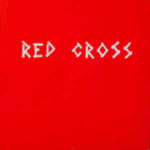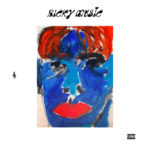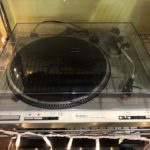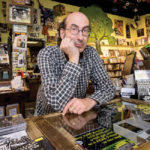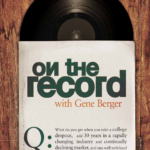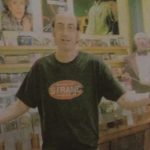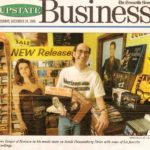Some choice stuff to get to in this week’s New Releases, and what better place to start than honky-tonker Dale Watson? Read on….

DALE WATSON, Blackjack (CD)
This release combines 20 of Dale Watson’s re-recorded greatest hits and one new track entitled “Blackjack,” along with new studio recordings of Dale’s LIVE classics including “Country My Ass” and “Nashville Rash”.
N.E.R.D., No One Ever Really Dies (CD)
The fifth NERD album charged into view with a ferocious lead-off single, Lemon, its relentless, speedy beat playing host to both a guest appearance from Rihanna and a sample from a YouTube video of rapper Retch shouting out to Martin Luther King and Malcolm X while smoking a joint amid a crowd of baffled-looking white pensioners. Where their previous albums featured Williams et al throwing one musical idea after another at the wall in the hope one of them would stick – everything from crunk to nu-metal to collaborations with garage rockers the Hives – No One Ever Really Dies boasts a gripping, consistent sound behind its plethora of high-profile cameos. Making a coherent album that can encompass appearances from Gucci Mane, MIA, Ed Sheeran and Frank Ocean is a big ask, but No_One Ever Really Dies pulls it off. The songs morph and change – Rollinem 7s, which features a verse from Outkast’s Andre 3000 good enough to make you infuriated that he seems so disinclined to release any music of his own these days, shifts its tempo continually and dramatically over the course of five minutes – but there’s a stylistic link that binds everything here together. Even at their most ostensibly laid-back, the beats always sound clipped and harsh and agitated; virtually everything arrives with an array of cut-up vocal samples in the background, jabbering incoherently to disorientating effect. On Deep Down Body Thirst or Don’t Don’t Do It, what No_One Ever Really Dies oddly recalls is Williams’ blockbusting single Happy with its rhythm denuded of soulful swing and its sound drained of carefree insouciance. The former features the choppy sound of the music that would come to be called northern soul updated and twisted until it conveys panic and dread, while the latter would feel lushly melodic were it not for the presence of a discomfiting, disruptive beat that refuses to settle down or land quite where you expect it to. At the other sonic extreme, there’s 1000, a bracing, chaotic babble of noise. When rapper Future turns up, encrusted in Auto-Tune, hymning his wealth and lifestyle – models in the bed, champagne in the club, thousands with which to gamble – the music behind him completely undercuts what he’s saying, as if all that is somehow beside the point. You don’t have to look too hard to work out what’s suddenly galvanised NERD. The lyrics come thick with calls to direct action – “Lean forward” urges ESP, a snappy bit of Sandberg-derived sloganeering – while the title of Don’t Don’t Do It ties together hip-hop’s history of social comment with last year’s grim viral video of a North Carolina policeman fatally shooting Keith Lamont Scott. Whatever the reason, the results are impressive, the sound of Williams and Hugo on their boundary-pushing A-game: the thought of a reggae-inspired track featuring Ed Sheeran might give even the singer’s most devoted fan pause, but the result is pretty triumphant. It’s a success that, given NERD’s track record, feels entirely unexpected. “Holy shit, it’s working,” exclaims Williams on 1000, seemingly as surprised as everyone else
NEW ORDER, NOMC15 (CD/LP)
When listening to New Order’s new live album, NOMC15, it’s phenomenal to think that most of the band has been playing together for more than 40 years, but the reminders come in the tightly orchestrated introductions and delicate details layered under the synth and guitars. Recorded at a show at Brixton Academy in 2015, NOMC15 begins with the most unlikely of songs: Wagner’s “Das Rheingold – Vorspiel.” Strings and synthesizer come together to create an ever-expanding sound, building to the climax, which, based on audience response, is when the band emerges on stage. It sets the tone for the 18 songs to come. The album celebrates the whole of New Order’s catalog, even delving into Joy Division’s greatest hits. As a New Order fan, I admittedly prefer the songs in their live form. The extended introductions for which the band is known make far more sense in this environment compared to the sterile sound on studio albums. This is especially apparent on “Ceremony,” on which the space of the venue allows Cunningham’s guitars to soar. The song, which was originally a B-side on Movement, was one of the last written by Curtis. The classic “Temptation” also gets the live-extension treatment, growing from a lengthy 7 minutes to nearly 10. Every minute is gloriously awash in post-punk synth and, when fans start clapping and singing along halfway through the song, it’s difficult not to join in at home (or wherever you’re listening). The album closes with what might be New Order’s most popular song: “Blue Monday.” “I recognize that beat,” Sumner says as the song’s iconic drum-machine beat starts. The audience does too, clapping along before the sexy and sullen melody kicks in. Less edgy than its studio version, the synth- and drum-heavy “Blue Monday” serves as a beautiful finale in contrast to the orchestral opening to the album. While certainly a record New Order fans will enjoy, NOMC15 also provides a best-of opportunity for new listeners to sample all the band has produced over the years.
.JEEZY, Pressure (CD)
EMINEM, Revival (CD)
BOOSIE BADAZZ, Boopac (CD)
KYLE DIXON & MICHAEL STEIN, Stranger Things 2 (CD)
SCARFACE, Deeply Rooted: Lost Files (CD)
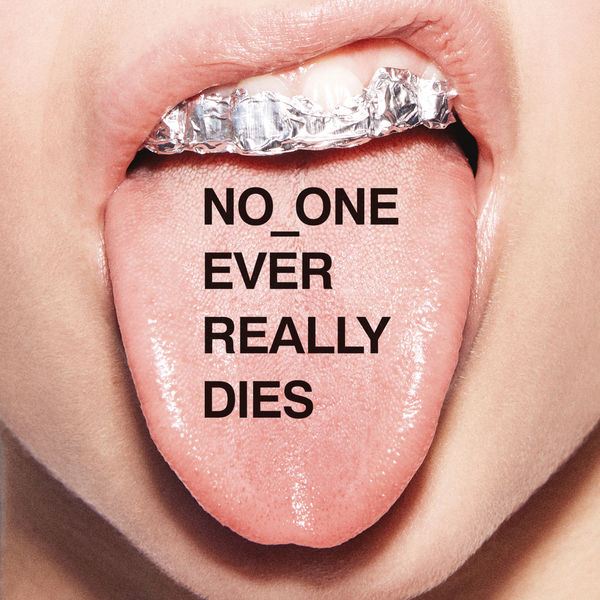
KILLER REISSUE:
STAN GETZ, Bossa Nova Years (5xCD)
THE BOSSA NOVA YEARS contains approximately 4 hours of music spanning five complete albums, including a never before released “Tribute To Stan” written by guitarist Baden Powell along with material from a classic Carnegie Hall concert. The booklet includes full discographical details, rare photos, incisive text, and new insights by Antonio Carlos Jobim.
And don’t forget these STILL-NEW platters that matter!
SUFJAN STEVENS, The Greatest Gift (LP)
A timeless yet specific reflection on empathy and loss, Sufjan Stevens’ 2015 album Carrie & Lowell stripped away many of the singer’s flourishes to reveal something barren and reverent, compassionate and utterly human. Writing in the wake of his mother’s death, Stevens used Carrie & Lowell to grapple with their fraught and often absent relationship, only to locate pathways to empathy and forgiving kindness. It’s an album of uncommon tenderness and delicacy, rendered with subtle instrumental invention and uncanny grace. Now, Stevens is releasing a companion collection: The Greatest Gift, a mixtape that recontextualizes and remixes many of Carrie & Lowell‘s songs, while placing them alongside four unreleased outtakes and Doveman’s remix of “Exploding Whale,” a track previously heard only on a 7-inch single. By design, The Greatest Gift is less essential than its counterpart, but it’s still an enlightening and frequently gorgeous conversation piece. The set’s previously unheard tracks — “Wallowa Lake Monster,” “The Hidden River Of My Life,” “City Of Roses” and the title track — each fit Carrie & Lowell‘s sonic template while brushing against its themes, often beautifully. And, though the iPhone-recorded demos (“John My Beloved” and “Carrie & Lowell”) function as curiosities more than anything, a few of the remixes are enormously powerful. The crushingly sad “Fourth Of July” wouldn’t seem like the stuff of remixes, to put it lightly, but James McAlister (aka 900X) gives it an extra thrum of tension, adding ghostly effects that speak to the song’s imagery without putting too fine a point on it. Stevens hasn’t released an official solo album since Carrie & Lowell, but he’s spent 2017 making the most of what could easily be minor projects: this set; a planetarium-themed collaboration with Nico Muhly, Bryce Dessner and McAlister; and the new songs he’s recorded for the rapturously received movie Call Me By Your Name. Each project has found a way to exceed the ambition expected of it — the calling card of a musician who approaches everything he touches with a full and generous heart.
SHOVELS & ROPE, Busted Jukebox, Vol. 2 (CD)
Busted Jukebox Vol. 2 is the follow-up to, you’d never guess it, 2015’s Busted Jukebox Vol. 1, which featured covers of the likes of Guns n’ Roses and Elvis Costello sung by ShoRo with help from acts like Lucius and JD McPherson. This time around, some of the featured ShoRo collabs include a few from artists on the bill for next year’s ShoRo-curated High Water Festival, including Concrete Blonde’s “Joey,” co-presented by Nicole Atkins, and Brandi Carlile with “Cleanup Hitter,” a song written by Charleston’s own Bill Carson. And a local makes another appearance with “The Air That I Breathe,” a track from the Hollies reimagined by Indianola, Owen Beverly’s most recent project.
CHRIS THILE, Thanks For Listening (CD/LP)
Not content with conquering the worlds of bluegrass, indie-folk, jazz and JS Bach in recent years, mandolin virtuoso Chris Thile is now the host of liberal America’s most revered radio show, A Prairie Home Companion. He took over from Garrison Keillor just in time for the 2016 election, so these topical songs (written to open each week’s show) have soundtracked the trauma of the left-leaning part of the nation during the Trump era. Stanley Ann is a twinkly, piano-led eulogy to Obama; Feedback Loop is a woozy ballad that confronts the self-reaffirming closed circuits of social media; Thank You, New York (featuring Gaby Moreno) celebrates the artsy, degenerate Big Apple. As with Douglas Fir, a heavenly Yuletide duet with Aoife O’Donovan – this album hits the spot.
JIM JAMES, Tribute To 2 (CD)
The My Morning Jacket frontman’s voice remains a potent instrument on this new release. From the Beach Boys’ I Just Wasn’t Made for These Times to Elvis Presley’s Crying in the Chapel, these are songs brimming with anguish and regret, qualities that lend themselves to James’s supple tones. These spare reworkings are dramatic and wonderfully arranged. The highlight is Abbey Lincoln’s The World Is Falling Down, a bewitching snapshot of society in meltdown.
BELLE & SEBASTIAN, How To Solve Our Human Problems (CD)
When Belle & Sebastian were just starting out, they released three EPs, Dog on Wheels, Lazy Line Painter Jane and 3.. 6.. 9 Seconds of Light, over a six-month period that earned them much critical and popular acclaim. These EPs cemented the group’s reputation as the premier twee indie band. The music was charming: effusively soft, self-reflective and fun. The lyrics celebrated innocence lost and found and lost again combined with chamber pop instrumentation that suggested the inherent value of formal feelings. The songs resembled extended sighs during a crass commercial era of Spice Girls, R Kelly, and boy band manufactured naïveté. Twenty years later Belle & Sebastian are at it again. This month they’ve released the first of three new EPs under the collective title How to Solve Our Human Problems. After a series of musical detours, individual projects, changes in group members and such, Stuart Murdoch and company have returned to the original sound that made them famous. The first five songs could be mistaken for unreleased tracks from an earlier era, but they are a bit more knowing. Or as Murdoch sings on the first track, “Swee Dew Lee”: “I didn’t think after 20 years / I’d be right back in the self-same places.” There may be a bit more self-awareness, but the songs’ personae are no wiser than the prescient narrators were before. So when Murdoch recollects the past on “We Were Beautiful”, he understands that he was always clueless. That left him and his friends open to new experiences before time turned everything upside down. Yes, they have changed, but he reminds us that they are not too old to change again. He delivers the message in a whispery voice over an insistent percussive beat and a recurrent brass fanfare. One is forever young no matter how old one gets.











